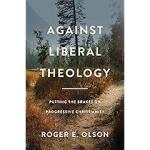If I did not believe that the clearest, highest, fullest expression of God is in Jesus Christ, the Word incarnate, then I would be something other than a Christian. That belief and that confession is the decisive clue to my own life and my own self-understanding. Jesus is the light by which I order my life. That is not diminished in the slightest by the acknowledgement that someone else may have indeed heard from God in another way.
I don't need to persuade them that the word they heard was not really from God. I'm willing to accept where they are, just as I want them to accept that I believe the true and full light from God comes to us in Jesus.
I'm not arguing that all religions are equal, or that one religion is just as good as another. I'm arguing that we need to build understanding with one another by taking seriously the histories and the traditions out of which people come, by respecting those traditions, and caring and love those people anyway whether or not they are Christian and whether or not they will ever become Christian. The Christian tradition commands us to love them unconditionally, to extend grace and be light to them, without condition. I believe we'll be far more effective in our own Christian witness if we approach that witness in terms of seeking to understand, rather than trying to overcome, where they are.
What about salvation? Even if Christians can learn from people of other faiths, does this mean that those people are bound for an eternity with God? Should Christians be concerned for the salvation of people of other faiths, even if they live their faiths devoutly?
Theologically, I think all persons will ultimately be redeemed. I believe in ultimate universal redemption. I have a very high view of God, and I think ultimately God's grace will prevail. Or that, at least, is my great Christian hope.
However, this does not mean that anything goes, or that differences don't matter, or that one religion is as good as the next. I believe that Jesus is the Way, the Truth and the Life, and that redemption comes through knowing God and experiencing the same grace of God that I have experienced through Jesus Christ. Now, whether others can experience the power and presence of God's grace without knowing or acknowledging that God's grace came to them through Jesus Christ, I simply have no judgment about that. In other words, it's the grace of God that I know through Jesus that sets me free, gives me hope and reconciles me. I make no judgment about whether someone else, in their own tradition, can lay claim on the grace of God as fully as I have through Jesus Christ. But I do believe that God's grace ultimately prevails.
Rob Bell's Love Wins launched a major conversation on salvation and the afterlife. He suggested that God would, in a sense, eternally hold the door open for those who have separated themselves from him to receive the grace he gave in Christ. Does this harmonize with your own views?
I haven't read Bell's book, but I do think we place too much emphasis on time. Death is the end of time but not the end of life. Death is a moment in life. We make death too much of an absolute boundary. Obviously I cannot claim to understand all the ways of God and what comes beyond the grave. But I'm not content to say that if God has not made his way into a person's heart before the person dies, then God has lost the opportunity forever. I don't want to impose a boundary like that on God. My universalism of hope is based on a very high view of God's presence and power.
Philosophically, I have a problem with the notion that there is an everlasting realm of evil, alongside the everlasting realm of good. Of course, I don't think of heaven and hell so much as places to go, but as conditions of the human spirit. Hell is the condition of living in the absence of God's presence, living as if God's presence is irrelevant. That leads to disastrous consequences. I don't in any way diminish those disastrous consequences and the judgment that they bring.
But I do believe that creation moves from God to God. The order of things, in the economy of God, is not Creation-Redemption-Judgment but Creation-Judgment-Redemption. Redemption is God's final word.
I suspect many Christians find a universalistic hope appealing, yet they feel that their fealty to scriptures won't allow it. They feel a tension between their own experience of a God who seems endlessly gracious and forgiving, and what seems like an exclusivist strain within the scriptures. Does your view of other religions and universal salvation require a diminished view of the authority of scripture?
There's a sense in which the scriptures do, at times, appear a bit exclusivist. Jesus says, "No one comes to the Father but by me." And I actually believe that to be the case. I just don't want to define that route too narrowly. I never get the feeling, even in scripture, about the behavior of Jesus. Jesus seemed to be embracing of all people, and particularly of sinners. I also realize that our knowledge of Jesus is mediated mostly through Scripture, but not exclusively. It's also mediated through the Church and our own experience of God.





